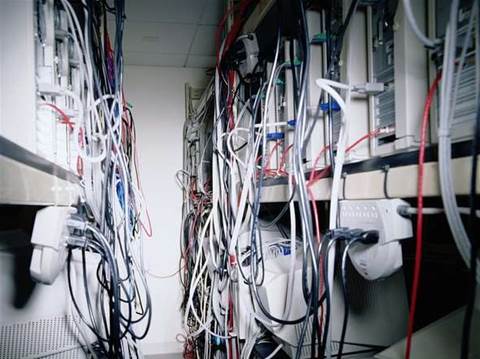Representatives of Sun Microsystems were pleasantly surprised by the turnout at the Project Blackbox launch in Darling Harbour, held the week before Christmas last year, a traditionally quiet period for the IT industry.
“The reception has been quite extraordinary … the turnout was outstanding, we were surprised at the number of C-level people that came to have a look,” said Angus Macdonald, chief technologist, Sun Microsystems. “I think we underestimated the interest it would draw, it struck a chord.”
Blackbox addresses the problems associated with expanding data centres by condensing a company's server network into a shipping container, providing a cost efficient alternative to building a traditional data centre. Macdonald also noted that attendees found the portability of the Blackbox to be one of the most intriguing features.
“People were impressed with the fact that you could put a Blackbox on a semi-trailer and deliver it to more locations,” he said. “What we keep hearing from companies is that they’re facing space constraints or energy constraints or both, so we’re able to offer extra space and extra power, while avoiding infrastructure costs."
There has been interest from overseas Telco’s seeking to use the Blackbox as a mini mobile base station. The aim would be to provide temporary access capabilities for mobile networks during special events such as festivals when there is high volume of mobile phone calls or messages.
“It’s become a matter of the imagination being the only limitation,” said MacDonald.
Sun is aware of the environmental benefits of the Blackbox and the opportunities in the market for green technology. The vendor is also focusing on altering its own business practices to be more eco-friendly.
“In the last five years we’ve being focusing strongly on environmental issues facing companies,” said MacDonald. “We've been involved in an initiative that aims to recycle 95 percent of what we make and use. We also went through a phase where we consolidated and virtualised our networks, which gave us the opportunity to lessen out carbon footprint.”
Macdonald implied that it may be naïve to assume corporations will adopt green technology for purely altruistic reasons; however there is a trend among consumers indicating a preference to deal with companies that take an environmentally-friendly approach.
“It’s one of two things; either a corporation is looking to be environmentally responsible and reduce their carbon output or they want to save money, either way there is definitely a greater social conscience in the industry,” he said.
He also notes that the environmental impact of Sun Microsystems technology, such as the UltraSPARC T1 processor, is an important consideration during the research and development stage.
“We consciously wanted to improve performance while at the same time start changing the equation in terms of how much electricity was being used. The aim was to double efficiency, draw less power, take up less space and draw less heat,” he said.
Sun’s Blackbox well received in Oz
By
Leanne Mezrani
on Jan 24, 2008 4:23PM

Got a news tip for our journalists? Share it with us anonymously here.
Partner Content
.png&h=142&w=230&c=1&s=1)
How mandatory climate reporting is raising the bar for corporate leadership

MSPs with a robust data protection strategy will achieve market success
_(27).jpg&h=142&w=230&c=1&s=1)
Promoted Content
Why Renew IT Is Different: Where Science, AI and Sustainability Redefine IT Asset Disposition
.jpg&h=142&w=230&c=1&s=1)
New Microsoft CSP rules? Here’s how MSPs can stay ahead with Ingram Micro
_(21).jpg&h=142&w=230&c=1&s=1)
Empowering Sustainability: Schneider Electric's Dedication to Powering Customer Success







.jpg&w=100&c=1&s=0)











